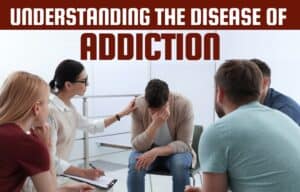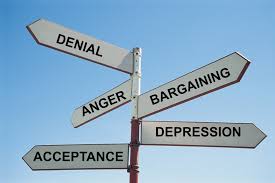
Understanding the Disease of Addiction
Many a time, a family brings their patient to me, explaining how their patient despite the best of their efforts is not able to quit….

Specifically addiction and broadly mental illnesses are not understood to be a physical existence in the brain. This is due to a lack of understanding how the brain is structured. Of course, not everyone is a psychiatrist, but even highly qualified doctors fail to understand the contribution of genes that ultimately with environmental reasons develop into addiction or other mental illness as a neuroplastic system. The neuroplastic system does not understand good or bad, good or evil; it understands pleasure and displeasure.
What happens is that our brain learns to desire pleasure all the time: while on a walk, while driving, studying, and of course during recreational activities. This race for pleasure ultimately ends up harming the people whose genes are susceptible to addiction. The others never feel the rush that these 10% of people feel. Normal people also do not feel like something is missing when they are not particularly feeling lots of pleasure. They are not obsessed about something or someone, or compulsively acting upon beliefs, experiencing paranoia; no, those people can easily let go. Of course, I’m not saying they don’t feel anything, but in fact, they feel the real experience. We, addicts, blow up the experience. Thus, we also have deeper regrets and nostalgia about the past. These things make it hard for us to move on and live a happy life.
 This essence of the will of the patient to be stubborn leads to denial when brought to treatment. The patient insists on the reality that he was facing as the truth. However, this is not the case. For example, a patient suspecting his parents trying to poison him, a patient feeling that a person loves him while that’s not true. Such feelings that are not grounded in reality form the base for addictions and illnesses.
This essence of the will of the patient to be stubborn leads to denial when brought to treatment. The patient insists on the reality that he was facing as the truth. However, this is not the case. For example, a patient suspecting his parents trying to poison him, a patient feeling that a person loves him while that’s not true. Such feelings that are not grounded in reality form the base for addictions and illnesses.
Why does this happen?
It happens because of a few core factors:
1. Patient’s Pleasure
2. Family’s Fear
3. No Psycho-education
The third factor is simple. Our society does not understand mental illnesses to be physical in nature. Thus, they think it’s a habit. They waste years trying to treat an illness while not knowing anything about the illness. and when they come with their patient they go into a denial. This leads me to the second factor.
The family fears the change it also has to go through. The family just desires the pain to stop. It is understandable. However, the family has to learn how to manage a patient of the brain just like the family of a patient of diabetes or heart has to learn. The family thinks after a week or two of hospitalization, their patient is talking some sense, they think he is healed and he will not do any substance again. However, the patient has not worked on any of his character defects. this leads me to the first and most important factor: the patient’s pleasure
This is , perhaps, the only disease in the world where the patient hates to be cured. the patient learns that all his life he had been dishonest. He learns that he did miserable and weak actions and has reached this place. That he has caused emotional, financial and social damage. The patient is now faced with a mountain of problems. Of course, after two weeks of hospitalization, if he goes back into the world, there is nowhere to turn to except for substance. And that is why we have rehabs.
Rehabs are meant to teach patients skills to manage their illness without harming anything. Once a patient begins rehab they begin to start wanting to be cured as well. They learn many, many things about themselves and learn skills. The family is also psycho-educated. There are follow ups and a fellowship to share the journey with.

As horrific this disease is, it is just as beautiful. recovery is a romantic relationship with ourselves.
There is a need to learn the psychological side of a patient, what he wishes to have in life and what are the problems with him. To care for your near and dear ones, you need to learn about the things related to him/her. One needs counseling from the best de addiction center in Punjab. You will get a list of rehab centers available nearby you. You can consult one psychologist to get it over with. You will not get results instantly. It needs regular efforts.
Cooperation of family members plays an important role. The coordination of the rehab center team and the family members will result in a successful journey for a patient. He will come out of it. Just go for the best drug treatment in Punjab and start today. When we start things, continue it, we will definitely succeed. We should help others also, if anyone is found taking drugs and they ruin their social life then rehab centers can help the needy people.

Many a time, a family brings their patient to me, explaining how their patient despite the best of their efforts is not able to quit….

Stress is a functional part of life. Without stress, we might not be able to perform actively…

We all know that exchanging information is communication but are we effective at it? …

In India, it is quite common for us to take care of our parents…
WhatsApp us